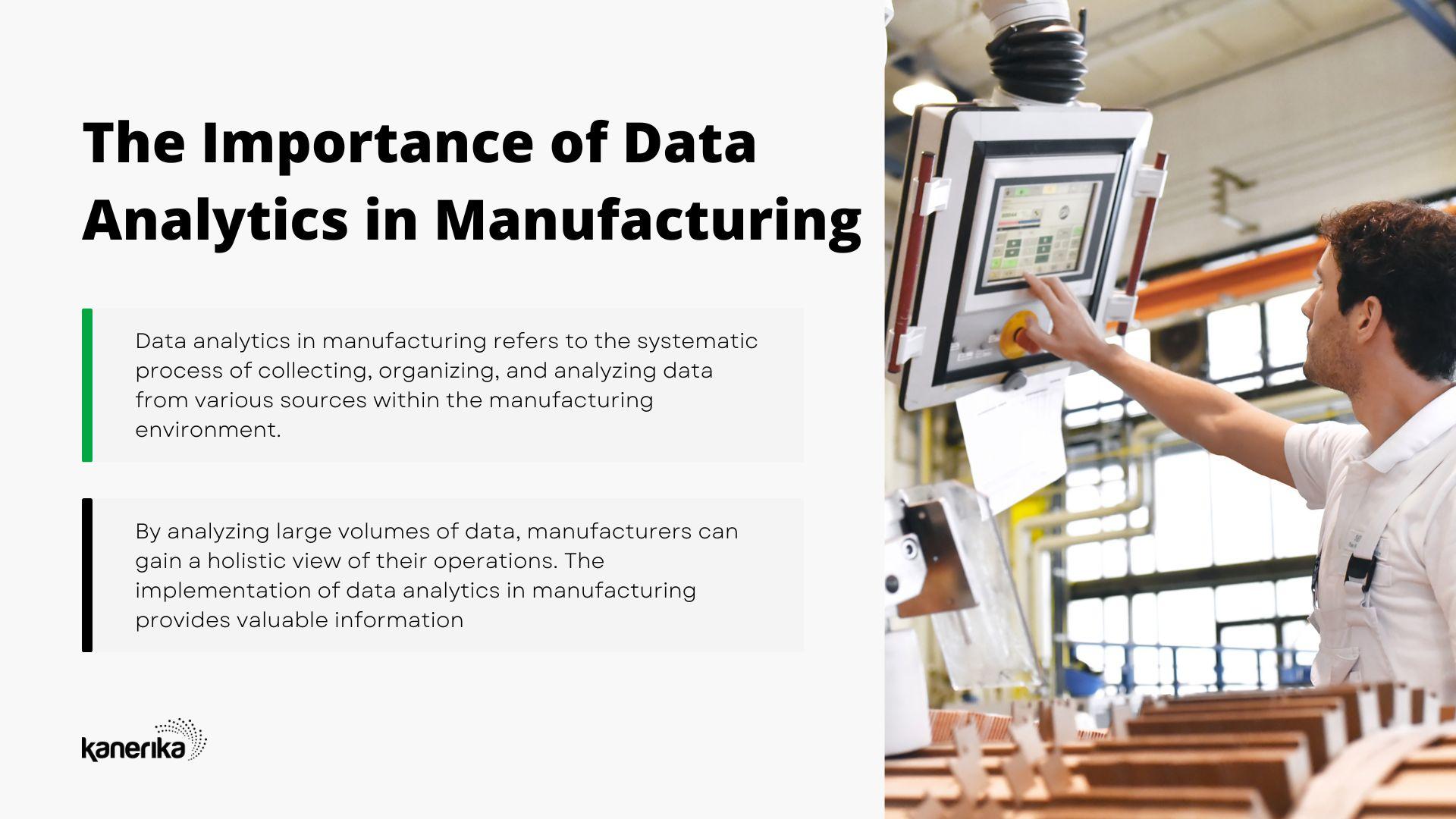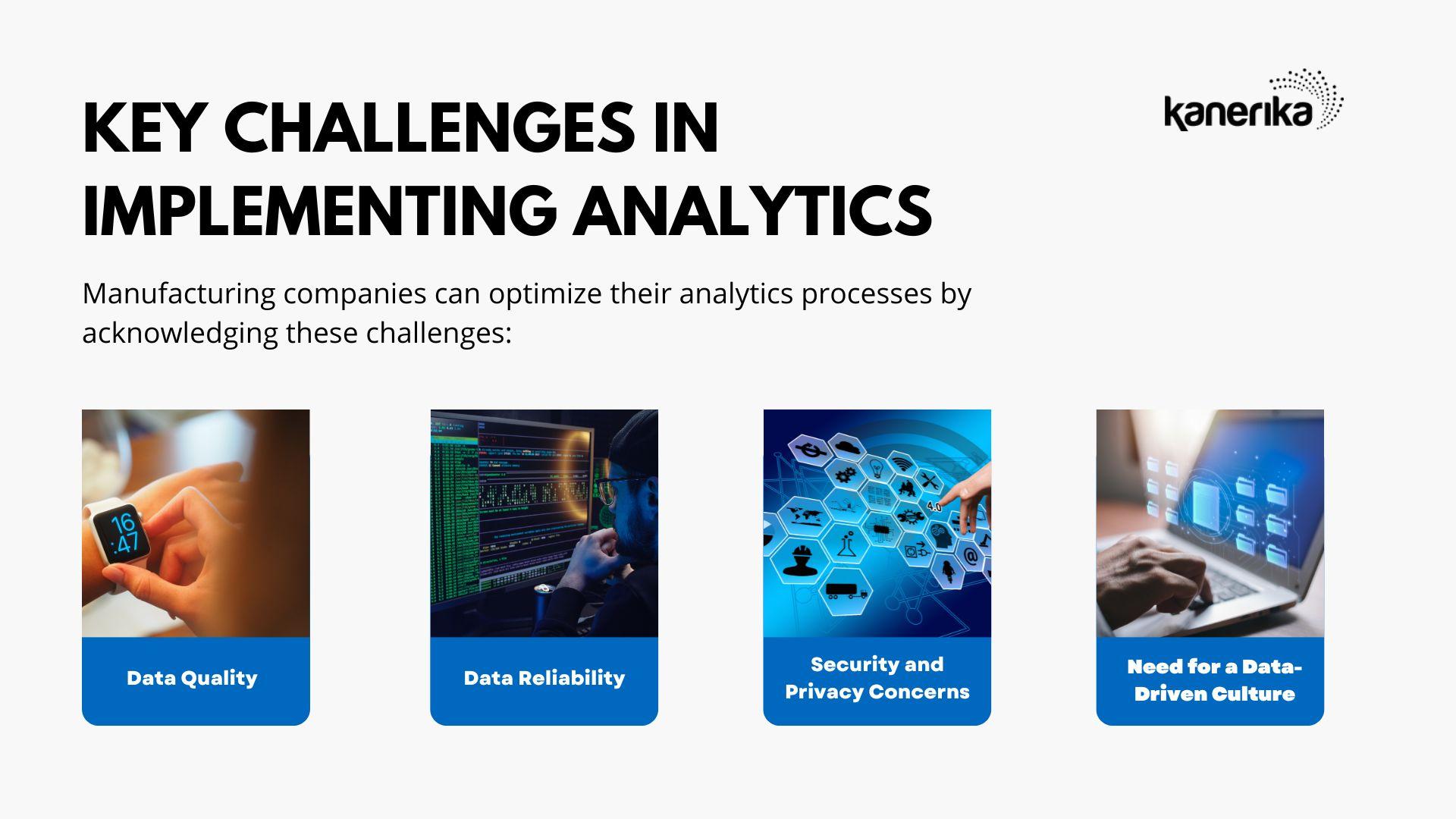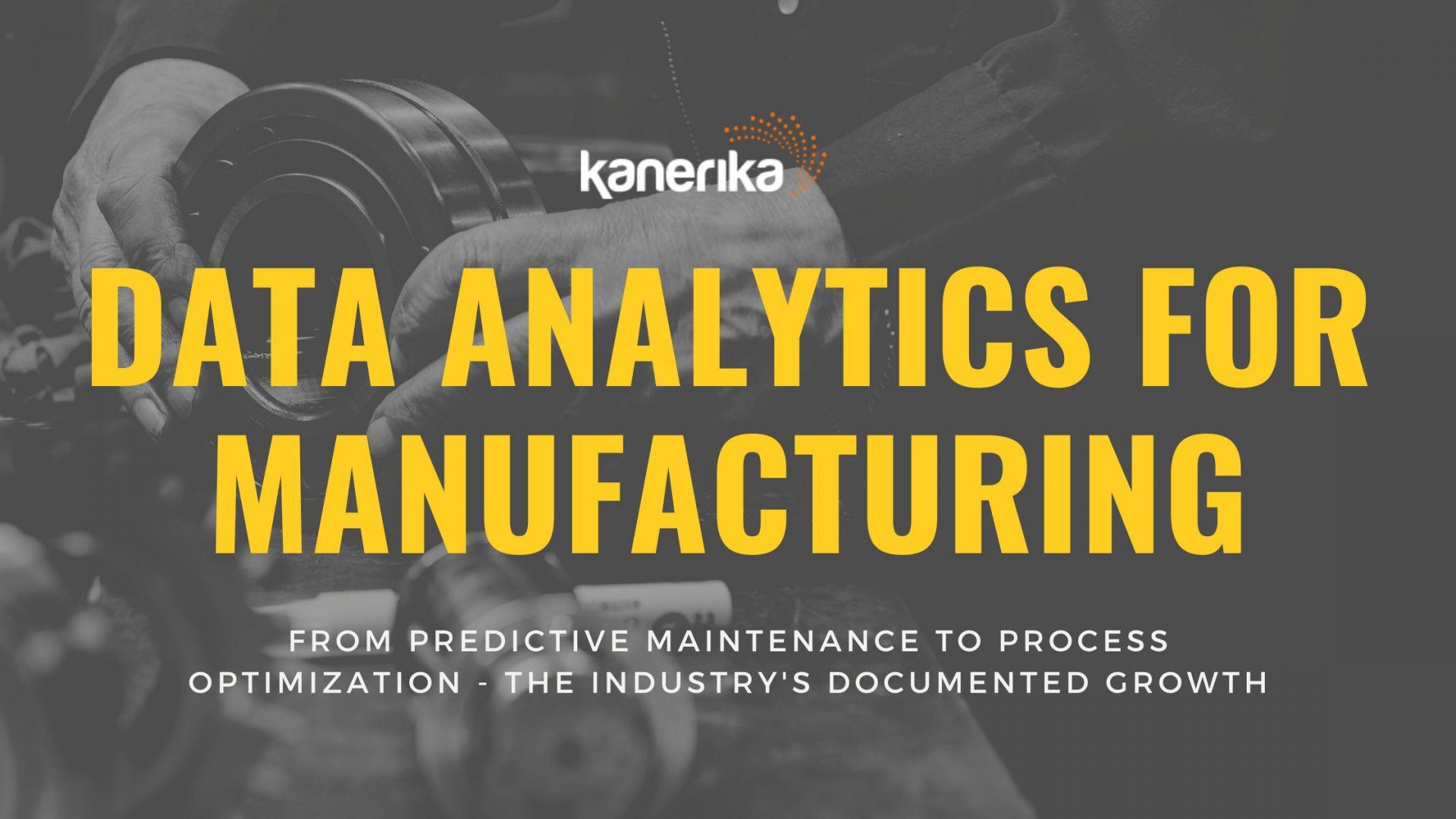Data analytics has emerged as a pivotal force in the realm of manufacturing, revolutionizing the way factories function. By leveraging analytical tools, manufacturers are tapping into the power of data to optimize their processes. From predictive maintenance to process optimization, data analytics in manufacturing is reshaping production lines.
In this article, we delve into the world of data analytics in manufacturing. We shall explore its significance and its benefits, enabling companies to enhance efficiency, quality, and overall performance.
Understanding Data Analytics in Manufacturing

Data analytics in manufacturing refers to the systematic process of collecting, organizing, and analyzing data from various sources within the manufacturing environment.
It involves applying statistical techniques, along with emerging technologies such as machine learning and artificial intelligence, to extract meaningful insights.
Extensive data is collected throughout the production lifecycle.
This data can be categorized into three primary types:
Operational Data
This includes real-time data captured from sensors, machines, and control systems on the shop floor. It offers information about production rates, energy consumption, and other relevant parameters.
Quality Data
Quality-related data is essential for manufacturers to ensure product consistency and compliance. It involves data regarding product defects, rejections, and quality control measurements.
Supply Chain Data
Supply chain pertains to the flow of materials, inventory levels, order tracking, supplier performance, and logistics information. It helps manufacturers optimize their supply chain processes and improve overall efficiency.
Importance of Data Analytics in Uncovering Trends
Data analytics in manufacturing has a crucial role. It enables the discovery of patterns, trends, and insights that might otherwise go unnoticed.
By analyzing large volumes of data, manufacturers can gain a holistic view of their operations. The implementation of data analytics in manufacturing provides valuable information such as:
Performance Patterns
Data analytics allows manufacturers to identify recurring patterns in production processes. Data analytics in manufacturing helps optimize machine settings and reduce downtime.
Cost Optimization
Data analytics in manufacturing helps identify areas of inefficiency, such as excessive energy consumption or material waste. Through these cost optimization opportunities, manufacturers can streamline operations and reduce production expenses.
Predictive Insights
By leveraging data analytics in manufacturing it is possible to predict equipment failures, demand fluctuations, and maintenance requirements. This allows for proactive decision-making and optimizing resource allocation.
Challenges in Implementing Data Analytics in Manufacturing

Doubtless, the benefits of data analytics in manufacturing are compelling. But there are several challenges that organizations must overcome to implement and leverage data analytics successfully.
Data Quality and Reliability
One of the primary challenges in data analytics is ensuring the quality and reliability of the data being analyzed.
Manufacturing processes generate vast amounts of data. Data alone is not enough, and it is crucial to have accurate and trustworthy data.
Data inconsistencies and incompleteness can significantly impact the reliability of analytics outcomes. Manufacturers need to establish robust data collection and validation mechanisms.
Security and Privacy Concerns
Embracing data analytics in manufacturing has to be accompanied by protecting sensitive data. Manufacturers must implement robust cybersecurity measures.
With the increasing connectivity of manufacturing systems and the collection of sensitive information, such as intellectual property, customer data, and proprietary processes, comes the risk of data breaches.
Data security breaches can lead to financial losses, reputational damage, and legal consequences.
Need for a Data-Driven Culture
Implementing data analytics in manufacturing requires a skilled workforce.
However, many manufacturers face skill gaps, with a shortage of data scientists, data engineers, and analysts with expertise in manufacturing analytics.
Investing in training and development programs to upskill existing employees is required to bridge the gap. Promoting data literacy and cultivating a data-driven culture within the organization is crucial.
Data analytics in manufacturing can enable a more efficient, resilient, and sustainable future by improving productivity. However, manufacturers must adopt a systematic and collaborative approach that involves defining a clear vision and strategy for data analytics.
Also Read- Business Transformation Strategies For Enterprises In 2024
Predictions for the Future of Data Analytics in Manufacturing and its Role in Industry 4.0
Data analytics is poised to play a pivotal role in shaping the future of manufacturing, particularly in the context of Industry 4.0
The fourth industrial revolution is characterized by combining digital technologies and automation. Here are some predictions for the future of data analytics in manufacturing.
Advanced Predictive Analytics
With the increasing availability of real-time data from connected devices and sensors, predictive analytics capabilities will continue to advance.
Manufacturers will be able to anticipate equipment failures and optimize maintenance schedules. This will minimize unplanned downtime and smoothen production blackouts.
Predictive analytics will also extend beyond individual machines to encompass predictive insights across the entire production ecosystem.
Artificial Intelligence and Machine Learning Integration
Artificial intelligence (AI) and machine learning (ML) algorithms will become more sophisticated and integrated into data analytics platforms.
AI and ML will empower manufacturers to optimize processes, predict demand fluctuations, and drive resource allocation in real time.
The net result will be improved productivity, agility, and responsiveness.
Integration of Supply Chain Analytics
As supply chains become more complex, manufacturers will increasingly rely on data analytics to optimize their supply chain operations.
Supply chain analytics will enable manufacturers to optimize inventory levels, streamline logistics, and enhance supplier collaboration.
By leveraging data from various supply chain touchpoints, manufacturers can achieve end-to-end visibility and responsiveness.
Unlocking the Potential of Data Analytics in Manufacturing with Kanerika
Over 85% of companies believe that data is the prime asset of their businesses and plays a pivotal role in achieving strong financial performance. Data analytics gives your organization the right information and insights to discover new opportunities, identify threats, learn more about your target audience and reinvent your business to maximize your potential.
With 100+ years of combined experience, our team of experts have worked with numerous global companies and helped them achieve their data analytics goals. They have a deep understanding of AI/ML/Big Data Processing and extensive knowledge of Snowflake, GCP, Azure, AWS, and Informatica.
Unlock new insights and revolutionize your manufacturing business with our consultation with our team.
FAQ
What is the significance of cost optimization through data analytics in manufacturing?
Can data analytics be applied to various aspects of manufacturing, or is it limited to specific areas?
What is the long-term impact of data analytics in manufacturing?
How can manufacturers get started with implementing data analytics in their operations?
What cybersecurity measures should manufacturers take when embracing data analytics?
What are predictive insights, and how do they relate to data analytics in manufacturing?
What are the potential benefits of implementing data analytics in manufacturing operations?
What security concerns are associated with data analytics in manufacturing?
Follow us on LinkedIn and Twitter for insightful industry news, business updates and all the latest data trends online.









